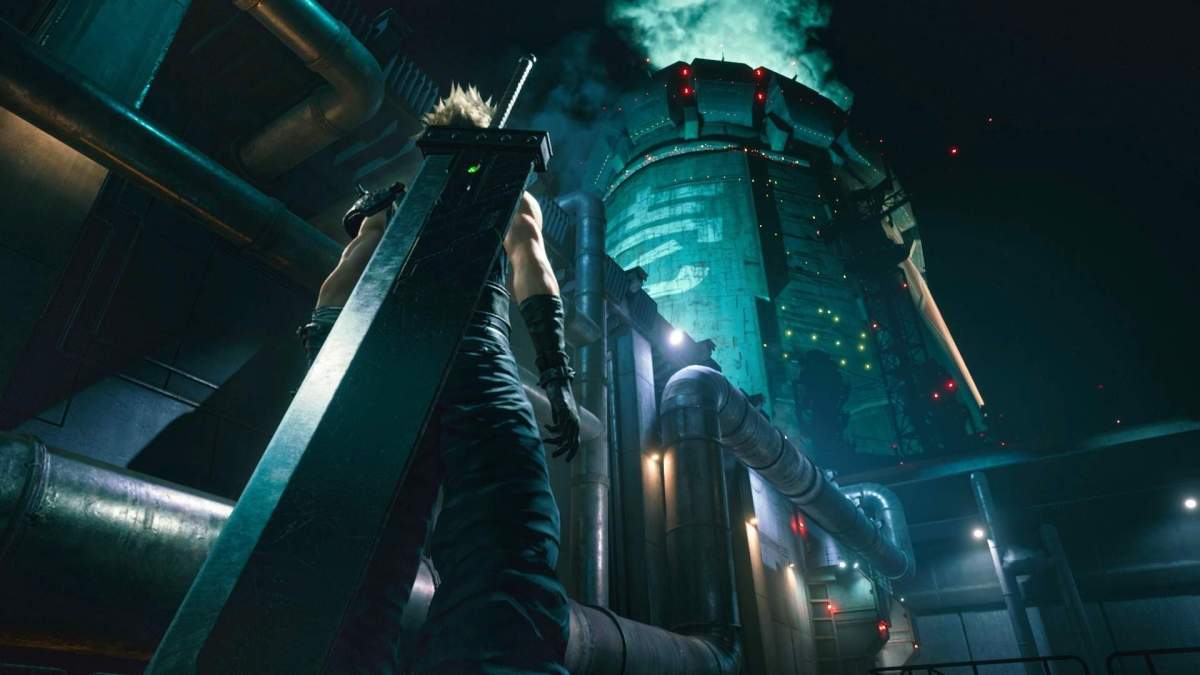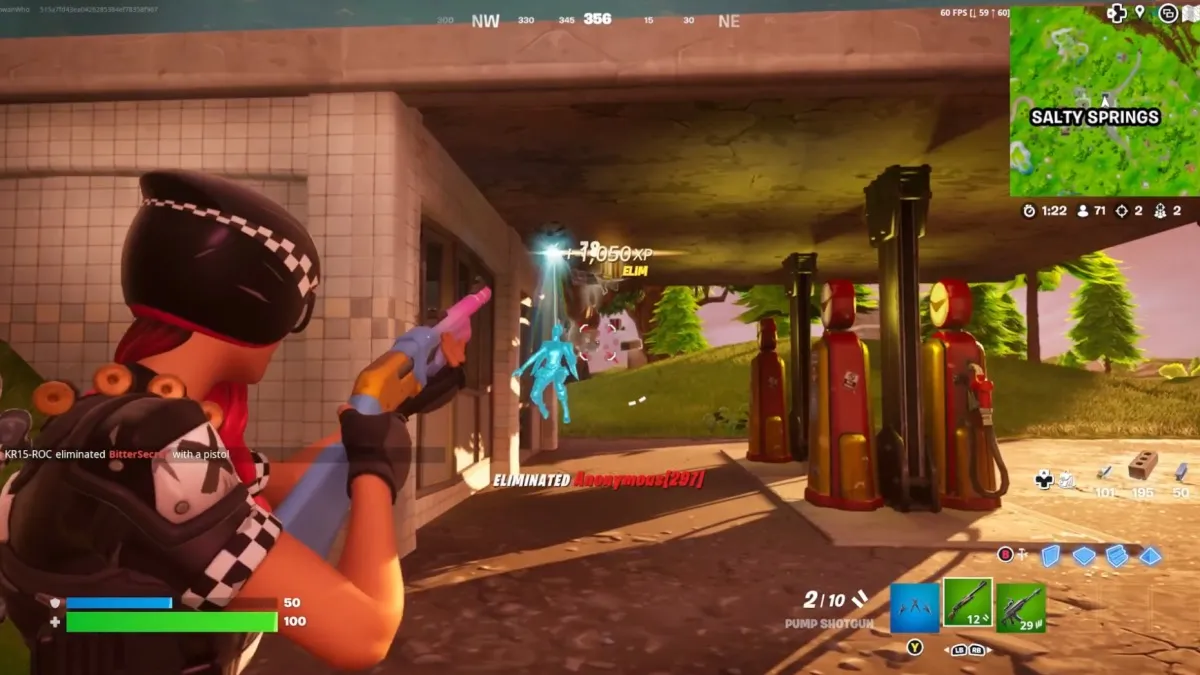Final Fantasy VII Remake on PlayStation 4
I sometimes wonder if Square Enix regrets that tech demo from 2005 which teased fans with the potential of a Final Fantasy VII Remake.
The demo was just meant to show off the power of the Crystal Tools Engine but instead it created a movement that would not be stopped. Fans of the classic PS1 RPG got a taste of what a remake could be like, and now the rest is history. The Final Fantasy VII Remake is fully operational and the masses will have their chance to play it this week.
I imagine in that moment and in the years that followed there was some regret on Square Enix’s end; but that tech demo is what started all this, and if the decade plus of fan requests is what was needed to make Final Fantasy VII Remake happen, then there’s nothing for them to be regretful about anymore. The game is an absolute masterpiece and has kicked off a franchise that will be the center of the JRPG world for the foreseeable future.
Note on spoilers: This review will be free of any major plot spoilers but will discuss some aspects of Final Fantasy VII Remake’s plot and gameplay. If you’d like to be 100% blind going in, we suggest not reading any further.

The most important thing that anyone that is reading this review needs to takeaway is that Final Fantasy VII Remake is not a 1:1 retelling of the original game. Anyone who has followed the news over the years is at least somewhat aware of that and that the story as a whole is going to be told across multiple games.
After all, how could this be a full-length game that takes place entirely in the Midgar section in the original if it didn’t have new content? That said, even with that knowledge going in, I was pretty surprised about how everything played out when it was all said and done.
I expected additional dialogue and some new story content, and maybe a few minor-ish changes here and there to pad things out a bit and subvert expectations. That definitely happened, but all of it was cranked up to an 11. Depending on your tolerance to things being at all different, this could be a dream come true or a nightmare. I found it to be somewhere in the middle but definitely towards the side of it being overall a positive and beneficial thing. Allow me to give you a few examples of the stuff that were objectively good.
One aspect of the original story that benefits the most from the changes in the remake is by far the relationship between Aerith and Cloud, and just Aerith’s character development in general.
Aerith feels way more naturally integrated into the story now and some of the most memorable moments in Final Fantasy VII Remake, at least for me, were basically any time Cloud and Aerith were alone. She gets way more screen time and her personality is far more developed now.

She is charming, kind, witty, sarcastic, and that all shines through in Final Fantasy VII Remake in a way that didn’t in the original. Also, the chemistry between Cloud and Aerith is far stronger in the remake.
Many, including myself, felt that the Cloud-Aerith relationship in the original felt forced and rushed, so much so that many people ship Tifa and Cloud instead. I think even the most loyal Team Tifa members, of which I used to be a card carrying member of before playing the remake, should at least revisit their position after playing through the remake.
The Avalanche crew, Jessie, Biggs and Wedge, are treated like major characters and Final Fantasy VII Remake’s laser focus on the Midgar portion of the original affords them a lot more time to shine.
Jessie is a huge flirt, Biggs is a capable right-hand man, and Wedge is a loyal and friendly follower that works twice as hard in order to pull his weight despite not being as naturally gifted as anyone else on the team. When bad things happen to them I actually cared this time around, whereas in the original I had basically forgotten they had existed by the time I reached the end of the game.

There’s also a ton of foreshadowing of what’s to come later in the game, and even in future parts, that wasn’t present in the original. For me at least, this was another example of a change being for the better in Final Fantasy VII Remake. I don’t want to get into the specifics for obvious spoilerific reasons, but new players should feel more blown away and less confused by some of the big twists when they presumably happen down the road.
The writing and voice acting for the characters are improved from previous Final Fantasy games as well. I can’t sit here and tell you that it’s as good as games like Red Dead Redemption 2 or God of War, but it’s definitely the best effort Square Enix has put together in that department, since well, ever. Moments where the writing and voice acting made me feel something positive or emotional far outweighed the cringe, which isn’t something that you can always say about modern numbered Final Fantasy games.
There are lots of side quests and mini-games. They are… mostly pretty good. Filler quests definitely do exist and are frustrating. Generally, though, most of them were interesting enough, and they are worth doing as they lead to some fun hidden scenes that players that try to blast through the story will miss. It’s not a major chore to just suck it up and do them all, and at least some of them will be enjoyable and will add to the immersion of Final Fantasy VII Remake’s beefed-up version of Midgar.

Finally, I have to mention the Honeybee Inn and Wall Market scenes somewhere since I know a lot of fans have been wondering about it. I’m not going to spoil anything, but all I have to say about that whole story arc is that it exceeded my expectations. It’s everything I hoped it would be and more. Nothing is held back, and it’s instead dialed up to even greater heights. That’s all, it’s something you need to experience for yourself. Please look forward to it.
I’ll circle back around to the story and talk about my impressions of the major story differences in a bit, but first let’s talk about the most obvious thing that is different from the original: the combat.
Unless you’ve been completely in the dark until now, you likely know that Final Fantasy VII Remake is not a turn-based game like the original, it is – mostly – an action-RPG. Fortunately for everyone, it’s a much better feeling ARPG than the last numbered Final Fantasy game, Final Fantasy XV.
It stands out on its own as it actually merges elements of both turn-based and ARPG gameplay while keeping the ATB system from the original.
Instead of just waiting around for the ATB to fill up so you can do something, you are dynamically attacking, evading, and blocking in combat with whatever it is that you’re fighting. When you attack your ATB (which is normally split into two halves) will fill up quicker and when you get a bar you can use an ability, item or a spell. Some abilities require two ATB bars or you can just save up two to launch two actions back to back.

Whenever you go to select an action the game goes into super slow-mo and you can enter what is called Tactical Mode, and pick your actions in relative peace. Alternatively, if you’re a fan of fast-paced action, you can shortcut certain abilities to your controller and keep things going while keeping the Tactical Mode to a minimum.
As you damage an enemy and/or hit it with its weakness you’ll build up a stagger meter a la Final Fantasy XIII which, when filled, will stun the enemy and increase your damage.
In battles against your common monster (there are no random battles, everything is visible on the field) you can pretty much just get away with mashing Attack and doing pretty much whatever it is you want. Later in the game there are some trickier regular monsters like Ghosts that will give you a hard time if you don’t respect their gimmick.
Boss and story battles are a different story. Most of these enemies have stagger requirements that are more complicated than just hitting it with Fire. You might need to target a body part, hit it with a certain ability, dodge an attack and then hit it with something specific.
You may also need to leverage the diversity of your party members. No two party members play the same. Tifa is designed for relentless and powerful strikes that can quickly stagger enemies if used properly. Barret slides into a ranged attack/tank role that can not only hit everything safely from a distance (very helpful when things get too chaotic around the boss) but can also use abilities to absorb damage for the party. Aerith is a pure ranged caster and healer with support abilities and Cloud is your typical bulky, hard-hitting physical attacker.

While that’s the general gist of the character’s roles because that’s what their innate abilities encourage, you can use materia to really get as creative as you want. If you wanted to give Aerith a Provoke materia and stack her with HP Up or turn Cloud into a slippery Thief, go right ahead.
Summon materia exists, and can only be used in “tough” battles. This might be disappointing but it makes more sense when you play it for yourself because they are so powerful (and fun) that using it in anything other than a tougher, longer battle would just be ridiculous.
It’s worth noting that all new abilities not obtained through materia are acquired via buying and using new weapons. Each weapon you obtain has a skill that you can use while having it equipped. Completing small tasks, such as something like finishing an enemy off with the skill five times, will permanently unlock the ability for you to use with whatever weapon you prefer. For most of the game there’s no clear “better” weapon. You can upgrade all of them and they all have pros and cons.
Cloud’s iconic Buster Sword is balanced towards Attack, Magic Attack and Defense, but other swords he gets in the game encourage a play style that leans in one or more of those directions at the expense of another which further allow you to experiment with “builds” that support your play style.

If you are a hardcore purist and want to throw the action-combat away and stick to something as close to the original game as possible, you sort of have a way to do that with Classic Mode.
Is Classic Mode a total faithful representation of the original game’s combat? Definitely not. The characters don’t line up and take turns wailing on each other. Does it, however, allow you to avoid the ARPG stuff and just focus on making decisions? Yes, it does.
In Classic Mode the AI will do a very nice job of blocking, dodging, attack, and performing boss mechanics (like getting behind cover for a super attack) for you. You can jump in and take over if you want, but you can leave it an autopilot for as long as you desire. In this scenario, all you need to do is select actions/spells when the ATB is full.
I thought that I was going to enjoy the game in Classic Mode more because I’m not a big fan of ARPGs, but I actually found myself enjoying the combat in Normal mode and rarely switched to Classic. While it’s not “pure” the ARPG combat is very well done.
Also, playing in Classic Mode feels a bit cheap because the monsters are tuned down to Easy level difficulty when you’re in Classic. So not only do you not have to worry about combat mechanics, everything is just easier to kill on top of that.
Final Fantasy VII Remake is clearly designed around the gameplay seen in Normal. Classic feels more like a Story-level difficulty seen in games for people that just want to experience the story without much resistance.
I really respect and appreciate the development team for including Classic Mode; it’s a big sign of respect to fans of the original that maybe haven’t kept up with modern ARPGs and just want to experience the remake. That said, I do wish there was a way to have a more challenging Classic Mode that pushes us turn-based fans a little harder.

There were a few battles during the story where I turned on Classic Mode to avoid the ARPG combat because it was too frustrating for one reason or another.
Sometimes the camera and/or lock-on would not work well. Other times the action was too chaotic and I felt like I couldn’t make any tactical decisions because I was just getting hit every few seconds and having my abilities interrupted. Or sometimes the strategy to stagger an enemy was just something very specific that I was ill-prepared for (lacking materia) or was something that I could not figure out and rather than ride the struggle bus, I turned Classic Mode on to avoid wasting time. Beating this game in time for the review embargo was a close one!
The big takeaway, though, as far as the combat goes is that for the most part, Square Enix nailed it. It’s a very well-crafted ARPG that infuses elements of the original. Does it sometimes get a little wonky? Yes. Could Classic Mode have been more pronounced and developed? Yes. But neither of those things took away from my overall enjoyment of the combat.
Okay, now it’s time to circle back around to the controversial stuff. Note: I’m not going to dive into any spoilers or specifics but I am going to give my overall thoughts on the whole of the plot in general which you can keep in the back of your mind when you experience the last act or so of Final Fantasy VII Remake for yourself.

There are big changes that go beyond adding more detail and exposition to fill out the game. The biggest that you’ll see very early on in the story is the addition of the mysterious Whispers. I don’t want to spoil their purpose, but they do play a major part in the story. They aren’t just there to be spooky.
By the end, Final Fantasy VII Remake will have beaten you over the head with the Whispers and their purpose that it starts to partially overshadow the rest of the plot by the remake’s end. There’s a reason for that, and I get where Square Enix was going with all of it, but it’s a lot to process and not everyone is going to be a fan of it.
The Whispers are connected with the other major changes to the plot. There are things, big things, that happen in Final Fantasy VII Remake that just straight up did not happen or are, in fact, very different or even the opposite of what happened in the original game and yeah, some people are going to be bothered by that, no doubt about it.
What it all amounts to is that despite having played and beat the original game, I actually don’t know exactly what’s going to happen in future installments of Final Fantasy VII Remake. That’s probably by design.
By the end of the game, the stage is set for the development team to drive Final Fantasy VII Remake in so many different directions. It could follow the original plot pretty closely like this first part did, or it could do something totally new. It depends on how you choose to interpret the game’s final moments.
Personally, I don’t know how I feel about all of that yet without knowing where this is all going. I appreciated the lighter stuff like more screen time for Jessie, Biggs, Wedge, Aerith, and the side quests that filled out the world more. Those all felt like easy, slam-dunk positive changes that are hard to get worked up over. But the bigger changes? Those I felt a bit uneasy about as I realized they were happening.

Still, in spite of feeling uneasy, I was hopeful as the credits rolled. This first part of Final Fantasy VII Remake has set the expectation for future parts that nothing is totally sacred. That, in general, the major story beats are going to be hit, but things are subject to change. For the most part, it was objectively for the better, but as for the controversial stuff, well, we have to see exactly where Square Enix goes with it all. It could be a disaster, it could be mind-blowingly awesome; it doesn’t fully play out by the end of this first part.
Regardless of all of that, it’s hard not to appreciate what Square Enix has done here. This remake has taken an act of Final Fantasy VII and successfully converted it to a full-blown game with much more to come.
It’s easy to get wrapped up in what is different, not different, etc.; clearly, because I just spent most of the review doing exactly that, but the heart and soul of Final Fantasy VII are still there.
It’s still a beautiful story about a ragtag group of rebels and a brooding mercenary going up against a greedy corporation that is relentlessly pursuing a more comfortable life and is willing to turn a blind eye to the damage their pursuits are inflicting on the planet and ensuing calamity. At some point, everyone must come face to face with this reality because it’s real whether they choose to accept it or not.
It’s still about personal struggles that are going on in the mind of Cloud and all of the others, as they all search for a purpose and volunteer to do what they feel is right, even if they don’t realize right away that they bit off more than they can chew. It’s also about Sephiroth. There’s a healthy dose of Sephiroth, don’t you worry.
There are also new moments that this remake introduces that fans of the original should really enjoy and for the newcomers, will be indistinguishable from the “classic” moments and that’s just really neat.

Using the full power of the PS4, Final Fantasy VII Remake allows fans to relive all of the original’s most memorable moments in just about the most beautiful way imaginable. The soundtrack matches the quality of the visuals and when the remake’s version of Fighting comes on for the first time, the nostalgia will be at maximum levels.
The development team leverages that nostalgia, but never abuses it. It infuses new ideas and creates something that is familiar but also fresh feeling. The mystery of what’s going to happen next is scary, but also a bit exciting.
If you’re willing to keep an open mind, you’ll be able to enjoy Final Fantasy VII Remake for what it is at its core: a gorgeous, well-made, and fun RPG that successfully retells one of the best video game stories ever told with a few twists.
- Successfully blends action and turn-based combat.
- Original plot is bolstered by an overwhelming amount of new details and dialogue.
- Jaw-dropping visuals and incredible soundtrack.
- Lots of side content and more replay value than you'd expect.
- Not all of the changes are positive ones.
- Classic Mode is too easy.
- Action combat is frustrating at times.
- The painful wait for Part 2 to find out what's going on.













Updated: Apr 2, 2021 02:31 pm